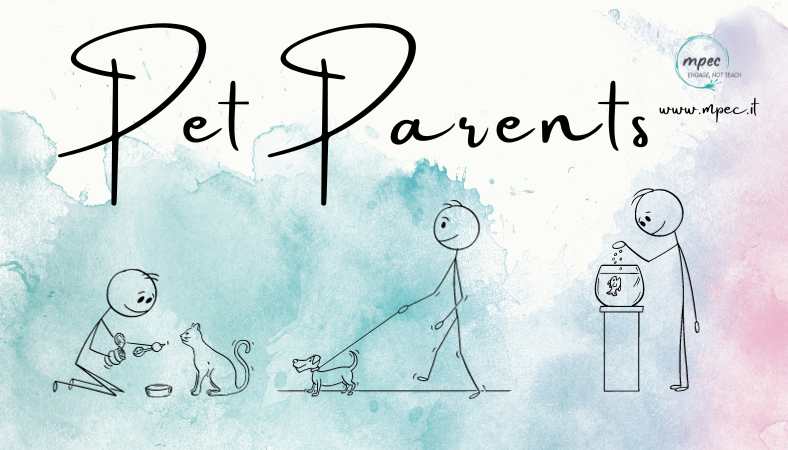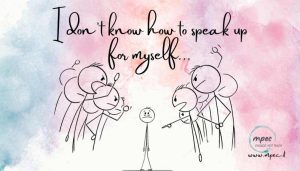Welcome to our Conversation Club! This is your opportunity to explore English in a fun and engaging way. Today, we’re talking about a curious and everyday topic: our pets but also our “pet peeves”! It’s a great way to learn new vocabulary and expressions in English, share experiences and laughter, and improve your speaking skills in English fearlessly.
Prepared for you by: My Personal English Coach
Non sai da dove iniziare?
Not sure where to start?
Why with pets we don’t say ‘it’ like with other animals but we use ‘he’ or ‘she’ pronouns?
In English, referring to pets with gender-specific pronouns like ‘he’ or ‘she’ instead of ‘it’ is a way of personalising and showing affection for the animal. This practice reflects the close bond many people feel with their pets, viewing them as members of the family rather than just animals or objects.
Using ‘he’ or ‘she’ acknowledges the pet’s unique personality and individuality. It’s a sign of respect and endearment, emphasising that the animal has its own character and is not just an impersonal thing. For many pet owners, their pets have distinct identities and roles within the family, and using gendered pronouns is a natural way to express this relationship.
Additionally, using ‘he’ or ‘she’ can make communication about the pet clearer, especially in contexts where the pet’s sex is known. It helps others understand which animal is being talked about, particularly in households or situations where there are multiple pets.
Overall, the choice of pronouns is part of the way language evolves to reflect societal attitudes and relationships, in this case, the special bond between humans and their pets.
Today, the Conversations are Double Trouble! We will talk about our pets using animal-related idioms! But remember, these idioms can also be used when discussing all kinds of other topics, behaviours and situations!
Round 1: Tell us about it!
- Have you ever had a ‘fight like cats and dogs’ moment with your pets? How did you handle it?
- Tell us about a time when you were ‘barking up the wrong tree‘ with trying to understand or train your pet
“Fight like cats and dogs” 🐱🐶
- Definition: To argue or fight a lot. Example: “My pets may fight like cats and dogs, but they’re really best friends at heart.”
“Barking up the wrong tree” 🌳🐕
- Definition: To pursue a mistaken or misguided line of thought or course of action. Example: “Thinking my cat will ever get along with the hamster is like barking up the wrong tree.”


Round 2: Let sleeping dogs…
Can you share a story where you decided to ‘let sleeping dogs lie’ with your pet’s quirky behaviour?
Is it easy for you (in general, not only with your pets)n to let sleeping dogs lie? Why? Why not? Would you like it to be different?
“Let sleeping dogs lie” 🛌🐕
- Definition: To avoid interfering in a situation that is currently causing no problems but might do so as a result of such interference. (In Italian, one could say: lasciar stare, while in Spanish: dejar pasar)
- Example: “When it comes to the old cat and the new puppy, it’s best to let sleeping dogs lie.”
Round 3: Absurd? Wait a Second…
Have you ever experienced a situation, in work or personal life, with pets or humans, where ‘the tail was wagging the dog’? How did you handle this reversal of roles or expectations?
A “pet peeve” is a minor annoyance that an individual finds particularly irritating, often more than it would bother others. It’s a personal annoyance, unique to one’s preferences or sensitivities.
Here are some examples of Pet Peeves:
- People talking loudly on their phones in public places.
- Drivers not using their turn signals.
- Being interrupted while speaking.
- People who are chronically late.
- Leaving lights on in unoccupied rooms.
What are some of your pet peeves, and why do you think these particular things bother you more than others?

“The tail wagging the dog” 🐕🐾
- Definition: A situation where a small part is controlling the whole of something.
- Example: “In our house, it’s the tail wagging the dog. Our pets seem to make all the decisions.”
Remember – there is always more! Here is your Follow Up Video:
#PetPeeves #EnglishLearning #ESLConversation #LearnEnglish #ESLVocabulary #LanguageLearning #EnglishPhrases #DailyEnglish #ESLTips #EnglishIdioms #SpeakingEnglish #EnglishClass #EnglishStudy #LanguageSkills #EnglishForEveryone #StudyEnglish #ImproveYourEnglish #EnglishLanguageLearners #EverydayEnglish #EnglishPractice #EngVocab #EnglishExpressions #ESLStudents #EnglishGrammar #EnglishLessons #EnglishOnline #EnglishTeachers #LearningLanguages #ESLClassroom #EnglishForAdults







